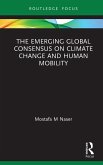As negotiations proceed for the post-Kyoto climate change regime, major obstacles stand in the path to their successful completion.
The Corporate Greenhouse addresses the political economy of the climate change debate, questioning the disconnect between the current negotiation framework, based around the nation-state, and the neoliberal policies driving the world economy, organized around transnational corporations. Given the rapidly growing economic power and expanding carbon footprint of China, India and other developing economies, the debate on 'who is to blame, and who is to pay' can no longer be ignored.
Carefully researched and sourced from original work and case studies, The Corporate Greenhouse explores the geopolitical division between North and South; questions the sustainability of capitalism in the current global economic environment; examines the impact of TNCs on worldwide CO2 emissions; and discusses the expected outcome of the EU Emissions Trading Scheme on corporate investment strategies.
This timely book argues that treaties that fail to account properly for the activities of TNCs will preclude effective, equitable solutions to the urgent issue of global climate change.
Hinweis: Dieser Artikel kann nur an eine deutsche Lieferadresse ausgeliefert werden.
The Corporate Greenhouse addresses the political economy of the climate change debate, questioning the disconnect between the current negotiation framework, based around the nation-state, and the neoliberal policies driving the world economy, organized around transnational corporations. Given the rapidly growing economic power and expanding carbon footprint of China, India and other developing economies, the debate on 'who is to blame, and who is to pay' can no longer be ignored.
Carefully researched and sourced from original work and case studies, The Corporate Greenhouse explores the geopolitical division between North and South; questions the sustainability of capitalism in the current global economic environment; examines the impact of TNCs on worldwide CO2 emissions; and discusses the expected outcome of the EU Emissions Trading Scheme on corporate investment strategies.
This timely book argues that treaties that fail to account properly for the activities of TNCs will preclude effective, equitable solutions to the urgent issue of global climate change.
Hinweis: Dieser Artikel kann nur an eine deutsche Lieferadresse ausgeliefert werden.









